【新唐人2011年7月27日訊】中國的貧富懸殊、社會不公、官民對立日趨惡化,中國人的怨氣越來越大,已構成嚴重的社會和政治危機。「中國社會科學院」社會問題研究中心主任於建嶸最近指出,仇官、仇富、仇警是今天中國最基本的社會心態,中國社會將來一定會發生非常大的動盪。
在7月20號「第22屆香港書展」開幕日,著名社會學者於建嶸教授發表演講,綜述了十年以來農民工人和市民維權的趨勢,他提到:甚至連河南省的黨校教師也罷課維權。
他指出,今年各地層出不窮的「群體性事件」,顯示中共政權失去了民眾的基本信任,星星之火就能輕易引發「群體性事件」甚至釀成騷亂。
於建嶸:「我告訴你們一個到大陸吵架的方法,只要你和人家吵架,你實在吵不過他了,你只要講一句話你就贏了:『你不就是個當官的麼?』 講完之後,肯定好多老百姓圍過來,『當官怎麼樣了。』為甚麼?仇官、仇富、仇警是今天中國最基本的社會心態。」
《華爾街日報》引述「中國改革基金會」國民經濟研究所副所長王小魯的獨立研究說,中國最富10%人口每年收入接近20200美元,是10%最窮人口的25倍。
「美林」公布的「2011全球財富報告」顯示,2010年中國擁有百萬美元以上資產的富豪達53.5萬人,位列全球第四。「世界奢侈品協會」的報告指出,2012年中國將取代日本成為全球第一大奢侈品消費國。
中國有錢人狂購天價豪宅、鑽石、名車、名錶等奢侈品,而在通貨膨脹的壓搾下,普通勞動者的收入應付生存所需的柴米油鹽和居住、醫療及子女教育,都捉襟見肘。
經濟學家郎咸平教授表示,中國工人的平均工資一小時只有0.8美元,比非洲還低,位列全球最後一名,而中國工人一年的工作時間卻是全世界最長的。
歐美甚至巴西的居民消費佔GDP的比重都在60-70%以上,而中國居民消費僅佔GDP的29%,郎咸平教授歸因於普通中國人太貧窮。
另一方面,中共當局的財政收入卻年年大幅度增長,今年上半年已超過5.6萬億,比去年同期增長31.2%。這就是海內外學者同聲指責的「國富民窮」。
於建嶸:「前一個階段它靠的是改革開放、甚麼政績、GDP、甚麼發展的效率﹔最近一個階段開始有人重回革命、要把原來革命的合法性又拿回來,這是共產黨今天遇到的一個很大的問題。所以它今天很困擾,甚麼教育都沒有用,你講所有的理論提出來,都在老百姓那裏變成了笑話。」
溫家寶最近表示,不指望中國諸多社會不公問題在近期內能得到解決。原趙紫陽政治秘書鮑彤指出,胡溫現在的任務是為下一屆領導班子「創造條件」、「不製造問題」,但這種做法只會帶來更多的麻煩。
目前,中共當局用於暴力維穩的經費已超過軍費。於建嶸教授表示,中共為了「維穩」不惜犧牲民生和一切資源,甚至把文革那一套都拿出來了,實際上存在巨大的風險。
於建嶸:「我們需要政治改革,而且我認為最關鍵的問題,今天要保障公民的言論自由。假如我們今天每一個人都把憲法法律當成草紙,我們都懷著一腔的仇恨,我認為中國社會將來一定會發生非常大的動盪。」
《炎黃春秋》雜誌副社長、原新華社高級記者楊繼繩,最近出版《中國當代社會階層分析》一書,引發很大反響。這本書在國內曾屢遭中宣部禁止,今年(2011年)終於解禁,公開發售。
楊繼繩指出,改革開放以來,「蛋糕」最大的部分被付出少卻有權的人占有,付出最多而沒權的人只能得到剩餘,這就造成了社會的仇官仇富現象。
新唐人記者李元翰、李月綜合報導。
China』s Officials and Wealthy Hatred
Wealth gap, conflicts between officials and the public and
social injustice in China are getting worse.
People』 grievances have developed into
serious social and political crisis.
Yu Jianrong, director of Social Research Center
of Chinese Academy of Social Sciences (CASS),
recently pointed out that hatred toward officials, the rich,
and the police is becoming the base of mentality in China.
This can lead towards a mass scale social turbulence
in China.
On July 20, at "The 22nd Hong Kong Book Fair,”
renowned sociologist Professor Yu Jianrong gave a speech
about the trend of defending the human rights
of migrant workers and other citizens in the past decade.
He mentioned that even teachers of the CCP』s College
in Henan Province went on strike to defend their rights.
He pointed out that this year』s continuous "mass incidents"
are a reflection of people』s loss of trust in the CCP』s regime.
A small spark can lead to mass-scale incidents
and even riots.
Yu Jianrong: Let me tell you how to quarrel in China.
If you are not winning the argument, you just need to say:
“You are an official, so what?”
Once you say that, a lot of people would gather around and say:
"What』s so great about the officials?”
Why is that? The hatred toward the government, the rich
and the police is the base of the social attitudes in China today.
Wall Street Journal quoted Wang Xiaolu, a deputy chairman
of National Economic Research Institute
of China Reform Foundation in his independent research:
“The top 10% rich people in China have an annual income
25 times higher than that of the bottom 10%.”
According to Merrill Lynch』s 2011 World Wealth Report,
in 2010, China had 535,000 millionaires, the 4th in the world.
World Luxury Association (WLA) reported that in 2012,
China is expected to take over Japan to be the #1 country
in consumption of luxury goods.
Rich people in China acquire expensive mansions, diamonds,
cars, watches and other luxury goods.
Ordinary workers, facing inflation, even have a hard time
to afford daily necessities, health care and education expenses.
Economist and professor Lang Xianping indicated that
the average hourly salary of Chinese workers is $0.8,
lower than that in Africa, and the lowest in the world;
but the Chinese workers』 working hours are
the longest.
In Europe and Brazil, consumption-GDP ratios are above 70%,
while in China it is only 29%.
Professor Lang attributed that to
the poverty of ordinary Chinese people.
Meanwhile, the CCP government revenue grows steadily,
with H1 2011 reaching $5.6 trillion, up 31.2% from 2010.
This “wealthy government - poor people” phenomenon
in China is being criticized by overseas scholars.
Yu Jianrong: Previously the CCP relied on the reform,
the so-called performance, GDP and development efficiency.
Recently, some people wanted to return to the revolution,
and take away the CCP』s legitimacy.
This is CCP』s problem of today.
It is very troubled and its so-called 『party education』 is useless.
All the theories they put forward are jokes to the people.”
CCP』s Premier Wen Jiabao recently said, he does not expect
the social injustice to be resolved in the near future.
Bao Tong, former political secretary of Zhao Ziyang,
(an ex-CCP leader but was sympathetic to the students in 1989),
pointed out that Hu Jintao and Wen are "creating conditions"
for the next leadership, but they actually bring more trouble.
Currently, the CCP』s expenditures on stability maintenance
via violence has surpassed China』s national defense funding.
Professor Yu said that the CCP, in order to "maintain stability,"
uses all the resources at the expense of people's livelihood,
just like it did during the Cultural Revolution.
In fact,
there is a high risk.
Yu Jianrong: We need a political reform.
The key issue is to safeguard people』s freedom of speech.
If everyone regards the law as waste papers and we have hatred,
there will be mass turmoil in China in the future.”
Yang Jisheng,
VP of The Yanhuang Chunqiu Magazine
and former senior reporter of Xinhua News Agency,
published “China's Contemporary Social Class Analysis.”
The book had great repercussions and was banned
multiple times by the Ministry of Central Propaganda in China.
Its ban was finally lifted in 2011.
Now it is available for sale.
Yang points out that since China』s reform and opening up,
the biggest part of the “pie” belongs to a small number
of people with power, who did not contribute much for it.
Those who work hard for it do not get any,
and this has resulted in hatred of the officials and the rich.
NTD reporters Li Yuanhan and Li Yue
看下一集
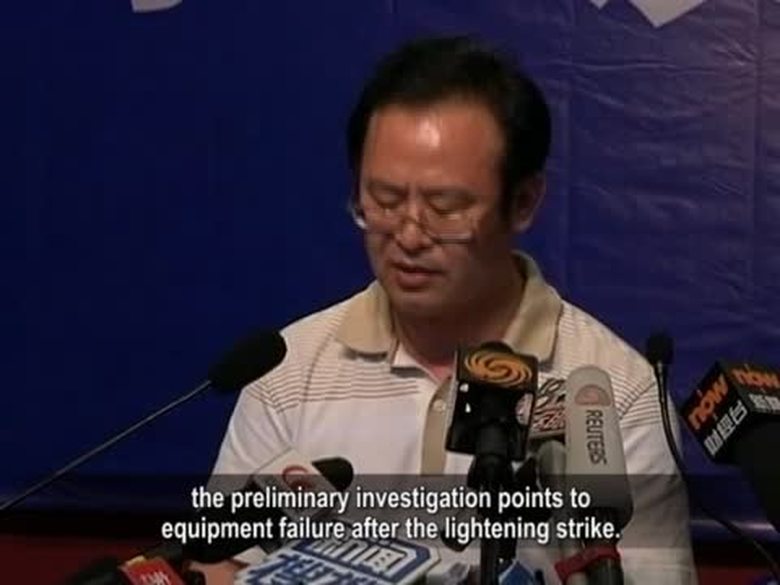
【禁聞】動車事故 中日處理方式大不同
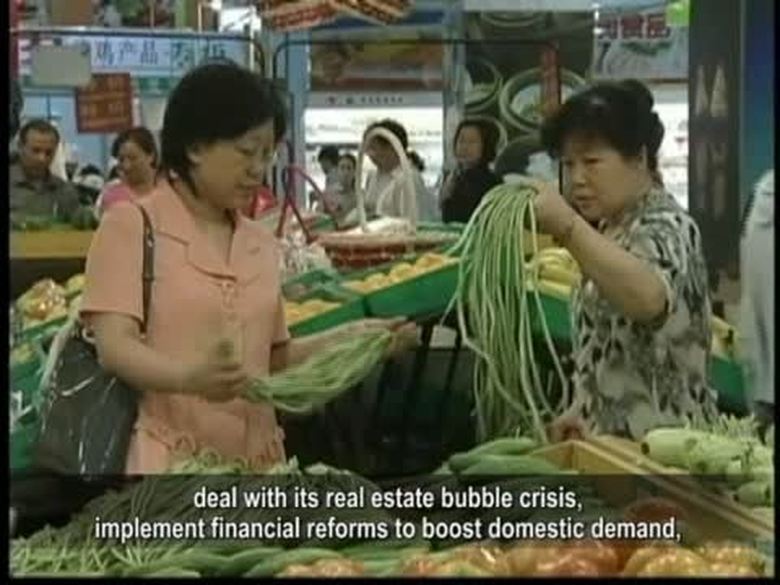
【禁聞】國際貨幣基金組織 促人民幣升值

【禁聞】賴案涉深高層黑幕 胡掌牌分化江派
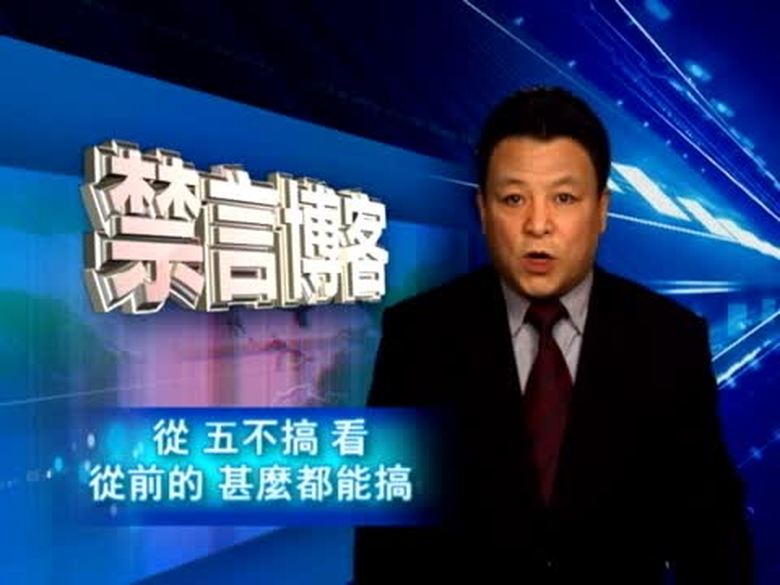
【禁言博客】貪官經驗交流會上的講話
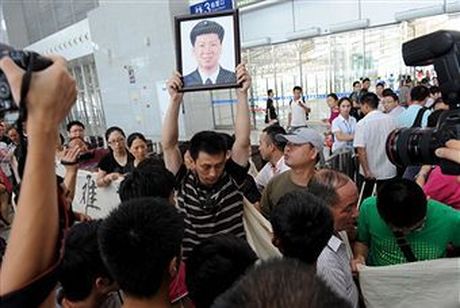
【禁聞】溫州事故引民憤 傳媒特警抗命

【禁聞】慘劇震裂鐵道腐敗王國 引高層整肅
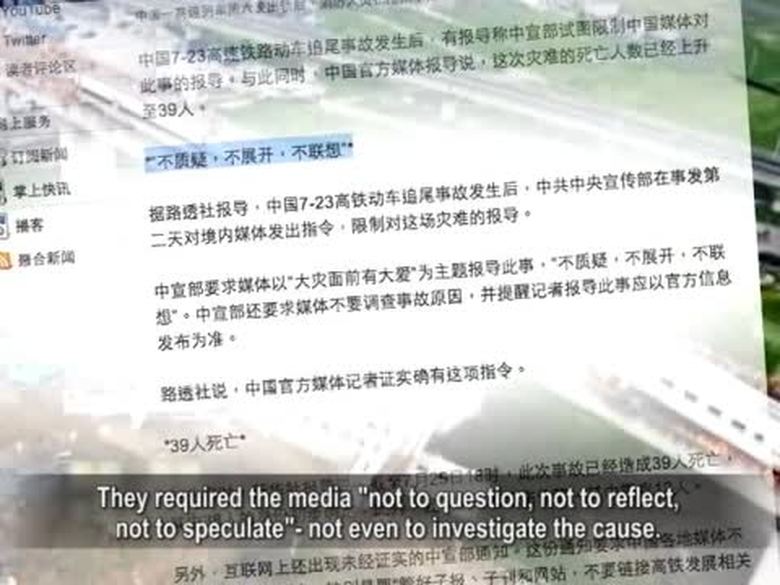
【禁聞】高鐵事故主因 中宣部令不報導
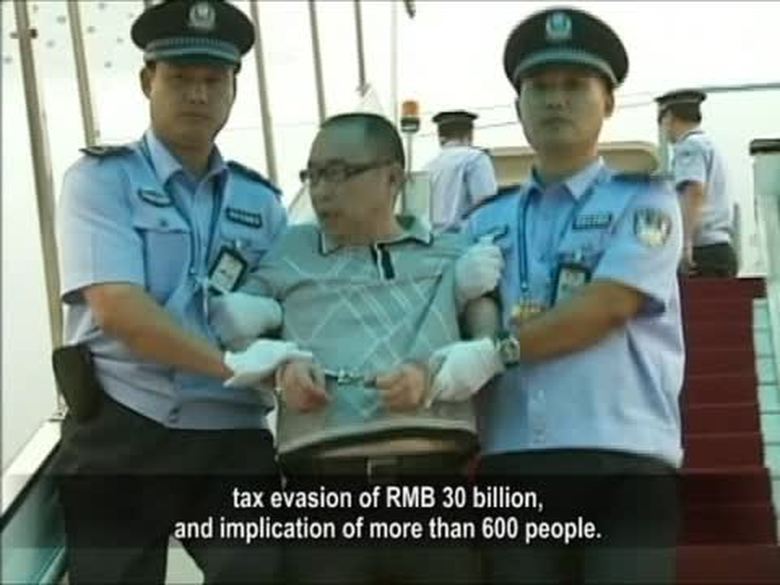
【禁聞】賴昌星案是否涉及中南海 民眾熱議
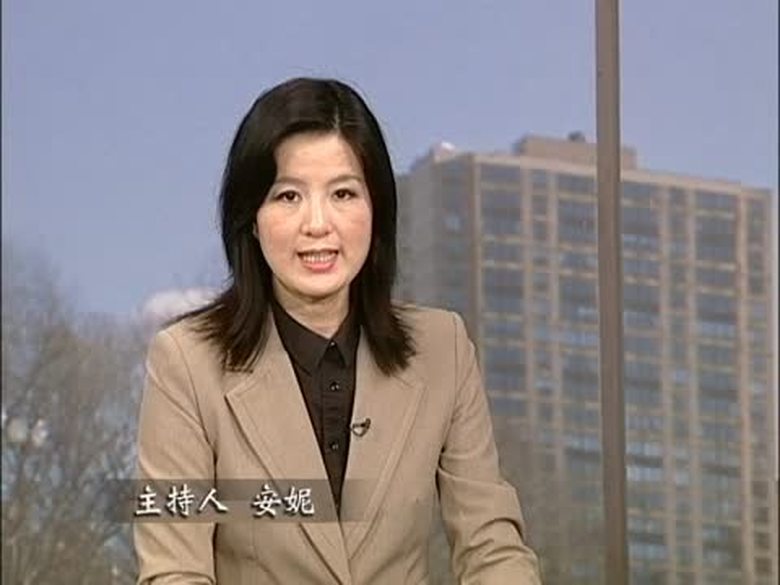
【禁聞論壇】中國人,你為甚麼不生氣?

【禁聞】中國改裝航母欲試水 外界反應不一

【禁聞】溫州慘劇媒體起義 主播藝人露真性

【禁聞】高鐵趕工獻禮釀災 慘案調查遭質疑

【禁聞】動車慘劇對比中共時代廣場廣告

【禁聞】信號系統出錯 無其他安全預案?

【禁聞】評論:中國高鐵“大躍進”

【禁聞】動車事故 信號領域壟斷暴利露倪端








